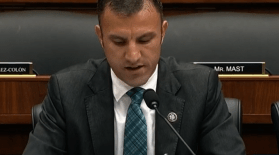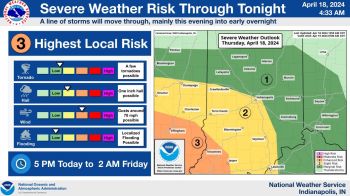
STATEHOUSE — Lawmakers are pushing a bill that would give police officers in Indiana a better idea of how to enforce a crime scene.
Usually, when investigators are at a crime scene they tape off the area with “Crime Scene” tape and also close down roads and walkways to keep civilians out of the way so they can do their work. However, these measures are not always foolproof in keeping civilians out of the way and police are limited in what they can do.
House Bill 1186 establishes parameters in which a police officer can arrest you for getting too close to a crime scene if you do not heed their warnings telling you to back up. It lays out a 25-foot threshold that officers can use as a reference to decide that someone might be getting too close to investigators at a crime scene.
“Two of the most necessary items to be able to de-escalate any situation are time and distance,” said State Rep. Wendy McNamara to a State Senate committee on Tuesday.
Police officers already have a reference distance they are taught to assess a possible threatening situation.
“The 21-foot rule, which is taught to police officers at the academy nationwide, is the distance that an officer or any person needs that when a bladed weapon is presented to take a look at that threat, decide what you are going to do, and act,” said Capt. Jordan Buckley with the Howard County sheriff’s department on WISH-TV.
Supporters of the bill want to enact something similar to people who may not be a threat, but are standing too close to a crime scene and refuse to back up when told to by police.
It’s this line of thinking that has those against it saying this is a way for police to hinder the ability of the public to hold them accountable, especially in cases where misconduct might get caught on camera.
“Citizens’ ability to record police records creates an independent record of what took place in a particular incident,” said Katie Blair with the ACLU of Indiana. “Community members cannot hold police officers accountable if they cannot observe what is going on.”
If you’re in a closed space, like this room next to us, a police officer could order somebody out of view of what’s going on under this law,” added Jason Riley with Young Americans for Liberty. “It would hinder their ability to record.”
The bill passed the Senate Criminal Code committee on Tuesday on a party-line vote. It has already gotten the full approval of the Indiana House.
















